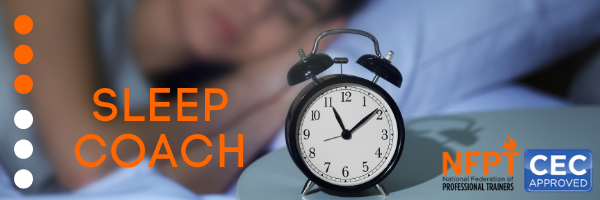In honor of stress awareness month, let’s pause for a moment to reflect on how stress and sleep are intertwined, and how we can support our clients in their wellness journey. There is a powerful relationship between these two “S” words; making small steps toward reducing stress and sleeping better will have a huge impact all throughout the human body systems. A little goes a long way, in other words.
The Stress and Sleep Connection
When sleep is inadequate, everyday life literally seems more stressful because the brain has less time to process the events from the day before. REM dreaming sleep in particular supports emotional health. And…when the human system is over-stressed, sleep gets interrupted by hormones like cortisol, shifting internal processes from parasympathetic (rest) mode into sympathetic (react) mode.
When the body produces extra cortisol to cope with stress, it remains elevated through the night and causes a domino effect that can last for days. High stress, low sleep, high stress again the next day, low sleep, repeat. Being awake when it’s time to sleep and tired when it’s time to be awake is frustrating and reversed from nature’s intention. This cycle can feel impossible to break, but it is within reach and can be quite easy if approached with small choices that resonate with the person making the changes.
Five Ideas to Reduce Stress
While a spa day is certainly beneficial for a reset every so often, it isn’t a sustainable strategy for day-to-day maintenance. There are many easy ways to reduce stress, here are a few ideas.
- Interrupt stress with mindful breathing, a walk or journaling
- Choose stress-busting foods and cultivate awareness around eating
- Incorporate mindfulness techniques into the day
- Spend some time outside in nature (take the next phone call outside)
- Engage in 30 minutes of physical activity, even just a walk
Reducing stress can be simple and applied in small increments throughout the day. Setting a timer for stress breaks throughout the day is one way to make sure they happen. Keep it small and simple.
Seven Steps to Sleep Better
Sleep is the pathway to mind and body restoration every night. Humans have been programmed to sleep for 1/3 of their lives, not by mistake, but intentionally. Sleep puts the constant onslaught of stimuli on hold and allows for every single system in the body to do repair work, including a complete “brain wash” with cerebrospinal fluid. Talk about a spa day (or night)!
While asleep, the body gets a huge break and has time to process and reset.
Tweaks to sleep hygiene can improve sleep even if daytime stress levels are high. It is easier to sleep with low stress levels, but not impossible to get decent rest. Here are some sleep suggestions to start with. Get started with any one of these and go from there.
- Maintain a consistent bedtime and rising time
- Dim lights and eliminate screens one hour before bedtime
- Engage in relaxing activities before bed such as stretching, a bath, reading a book and meditating
- Expose the eyes to light first thing in the morning; get outside during the day
- Get physical activity on most days and finish three hours before bedtime
- Limit caffeine to one cup, before lunch time
- Finish dinner two hours before bedtime
Help people choose a few items from each list that resonate with them and if someone needs more sleep support, consider using a sleep journal to guide them in the right direction. Many people make natural changes to lifestyle choices just through the act of awareness that comes with record keeping.
Guiding clients toward managing stress and sleep hygiene at the same time with a few small, realistic changes can provide profound results that also benefit motivation for exercise and nutrition, giving your entire mission as a fit pro a boost.
Beverly Hosford, MA teaches anatomy and body awareness using a skeleton named Andy, balloons, play-doh, ribbons, guided visualizations, and corrective exercises. She is an instructor, author, and a business coach for fitness professionals. Learn how to help your clients sleep better with in Bev's NFPT Sleep Coach Program and dive deeper into anatomy in her NFPT Fundamentals of Anatomy Course.



